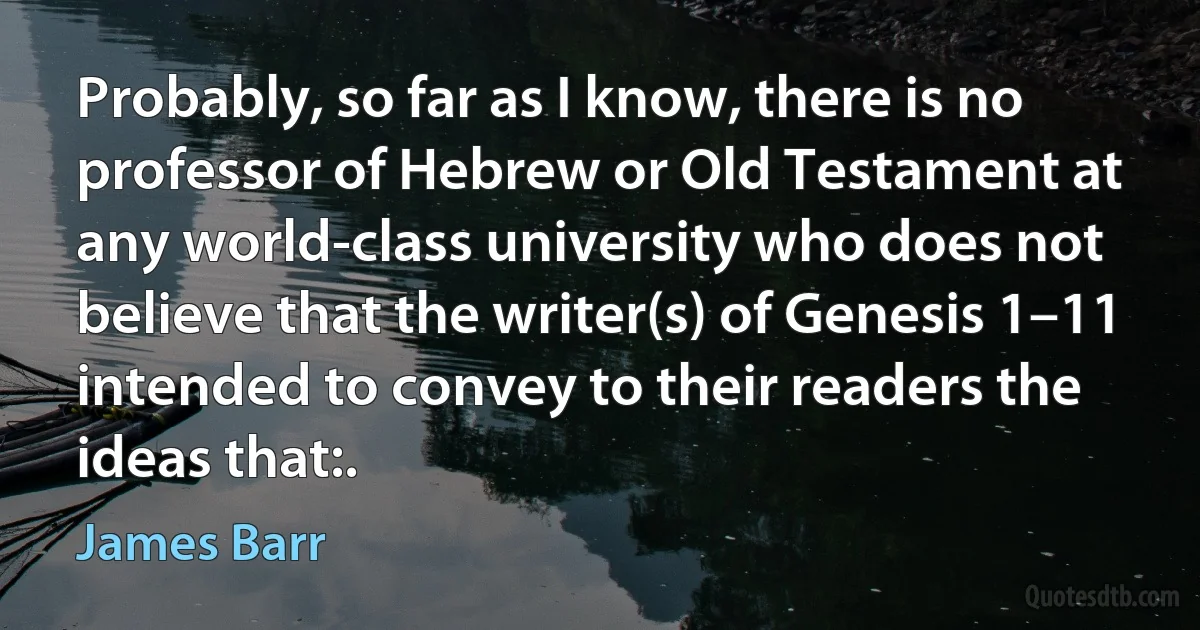Intended Quotes - page 29
These questions are not intended to represent a catechism for the new education. These are samples and illustrations of the kind of questions we think worth answering. Our set of questions is best regarded as a metaphor of our sense of relevance. If you took the trouble to list your own questions, it is quite possible that you prefer many or them to ours. Good enough. The new education is a process and will not suffer from the applied imaginations of all who wish to be a part of it. But in evaluating your own questions, as well as ours, bear in mind that there are certain standards that must be used. These standards must also be stated in the form of questions:.

Neil Postman
Cultures may be classed into three types: tool-using cultures, technocracies, and technopolies. ...until the seventeenth century, all cultures were tool-users. ...the main characteristic of all tool-using cultures is that their tools were largely invented to do two things: to solve specific and urgent problems of physical life, such as in the use of waterpower, windmills, and the heavy-wheeled plow; or to serve the symbolic world of art, politics, myth, ritual, and religion, as in the construction of castles and cathedrals and the development of the mechanical clock. In either case, tools (...were not intended to attack) the dignity and integrity of the culture into which they were introduced. With some exceptions, tools did not prevent people from believing in their traditions, in their God, in their politics, in their methods of education, or in the legitimacy of their social organization...

Neil Postman
In spite of all the training you get and precautions you take to keep yourself alive, it's largely a matter of luck that decided whether or not you get killed. It doesn't make any difference who you are, how tough you are, how nice a guy you might be, or how much you may know, if you happen to be at a certain spot at a certain time, you get it. I've seen guys out of one hole to a better one and get it the next minute, whereas if they'd stayed still they wouldn't have been touched. I've seen guys decide to stay in a hole instead of moving and get it. I've seen guys move and watch the hole they were in get blown up a minute later. And I've seen guys stay and watch the place to which they had intended to move get blown up. It's all luck.

James Jones
The first question we have to answer is: What is the object of religions? They are given to the world by men wiser than the masses of the people on whom they are bestowed, and are intended to quicken human evolution. In order to do this effectively they must reach individuals and influence them. Now all men are not at the same level of evolution, but evolution might be figured as a rising gradient, with men stationed on it at every point. The most highly evolved are far above the least evolved, both in intelligence and character; the capacity alike to understand and to act varies at every stage.

Annie Besant
You ask Israel to cease building settlements on the West Bank, which are intended not only to house Israelis, but to provide a defense bulwark when the Islamist armies of the surrounding states, Egypt, Jordan, Lebanon, Syria – Assad or his opponents – and Iraq, again try militarily to crush Israel. Will Britain come to Israel's aid? I recall when in one of those wars, Britain declined to deliver to Israel tanks it had purchased from your country. Britain under Chamberlain participated in the Munich sellout of Czechoslovakia. What you and your European colleagues are doing now is repeating the sellout, this time of Israel. The Czech Republic, mindful of what happened to it, is the only European country to vote no to Palestinian statehood. When one of your predecessors told the world that he offered "peace in our time," he wrote himself into history as a disgrace. How will history on this issue recall you? Why would you expect Israel to cooperate in its intended lynching?

Ed Koch
It was the habit of Titian to paint pictures for the places they were intended to fill, and in this he fol- lowed the traditions of all the schools. Sketching and laying in the subjects so far as he was able in his workshop at home, he took the canvas to the spot in which it was to hang, and finished it there.

Titian
It's too late for someone to steal this story now, I suppose. I intended Doom to return to Latvaria and absolutely freak out when he discovered what his robots had done to Kristoff. Basically-he'd need a whole lot of new robots by the time he calmed down. And then he would devote a whole lot of time and energy to restoring Kristoff. (I had not decided if he would be successful. Part of my brain wanted him to realize he needed the help of the other smartest guy on the planet-and there was no way he could ever go there!) (2007)

John Byrne
When Christianity becomes conscious of its innermost nature, it realizes that it is godliness rising our of inward constraint. The highest knowledge is to know that we are surrounded by mystery. Neither knowledge nor hope for the future can be the pivot of our life or determine its direction. It is intended to be solely determined by our allowing ourselves to be gripped by the ethical God, who reveals Himself in us, and by our yielding our will to His.

Albert Schweitzer
Pinkerton seems busy in his intended history of Scotland; whether it is to be the same with that advertised under the name of Robert Heron, I cannot learn. His treatment of the " Celtic savages" is to be speedily resented in print by the Reverend John Lane Buchanan, nominal author of "Travels in the Western Hebrides," who seems in fact, to be as very a Celt as his antagonist could possibly wish for. I am sorry to find so good a cause in the hands of such an incompetent advocate.

Joseph Ritson
The reality is that the idea of improving on the genes that nature has given us alarms people. When discussing our genes, we seem ready to commit what philosophers call the naturalistic fallacy, assuming that the way nature intended it is best. By centrally heating our homes and taking antibiotics when we have an infection, we carefully steer clear of the fallacy in our daily lives, but mentions of genetic improvement have us rushing to run the "nature knows best” flag up the mast. For this reason, I think that the acceptance of genetic enhancement will most likely come about through efforts to prevent disease.

James D. Watson
A law explains a set of observations; a theory explains a set of laws. The quintessential illustration of this jump in level is the way in which Newton's theory of mechanics explained Kepler's law of planetary motion. Basically, a law applies to observed phenomena in one domain (e.g., planetary bodies and their movements), while a theory is intended to unify phenomena in many domains. Thus, Newton's theory of mechanics explained not only Kepler's laws, but also Galileo's findings about the motion of balls rolling down an inclined plane, as well as the pattern of oceanic tides. Unlike laws, theories often postulate unobservable objects as part of their explanatory mechanism. So, for instance, Freud's theory of mind relies upon the unobservable ego, superego, and id, and in modern physics we have theories of elementary particles that postulate various types of quarks, all of which have yet to be observed.

Johannes Kepler
As a mechanic, Rittenhouse became celebrated for the extreme exactness and finish of his workmanship. Especially celebrated were his chronometer clocks. It was while thus engaged in the manufacture of clocks that he planned and executed an instrument which brought into play both his mechanical and mathematical skill. ...the orrery. It was, indeed, intended to be a sort of a perpetual astronomical almanac, in which the results, instead of being exhibited in tables, were to be actually exhibited to the eye. His orrery greatly exceeded all others in precision. It attracted very general attention among well informed persons... There arose a lively competition between different colleges in this country for the possession of this orrery.

David Rittenhouse
Thus was the Nixon Administration first exposed to the maddening diplomatic style of the North Vietnamese. It would have been impossible to find two societies less intended by fate to understand each other than the Vietnamese and the American. On the one side, Vietnamese history and Communist ideology combined to produce almost morbid suspicion and ferocious self-righteousness. This was compounded by a legacy of Cartesian logic from French colonialism that produced an infuriatingly doctrinaire technique of advocacy.

René Descartes
The war was finished. It had lasted ten equivalent years and taken ten million lives. Thus it was neither of long duration nor of serious attrition. It hadn't any great significance; it was not intended to have. It did not prove a point, since all points had long ago been proven. What it did, perhaps, was to emphasize an aspect, sharpen a concept, underline a trend.
On the whole it was a successful operation. Economically and ecologically it was of healthy effect, and who should grumble?
And after wars, men go home. No, no, men start for home. It's not the same.

R. A. Lafferty


